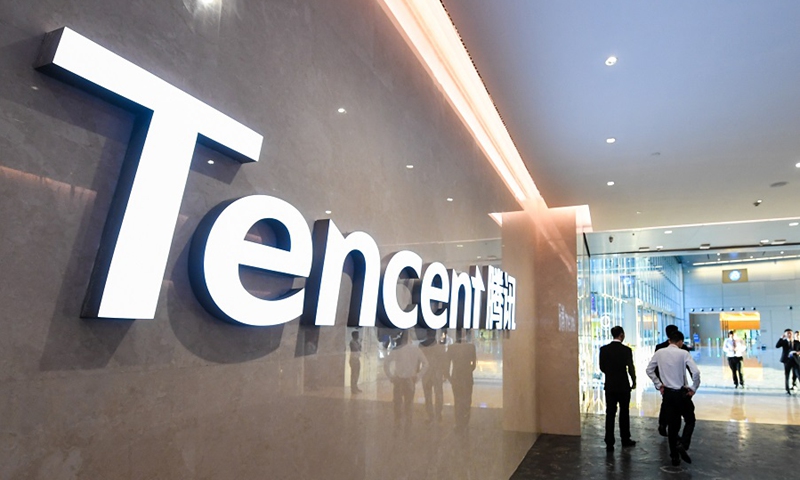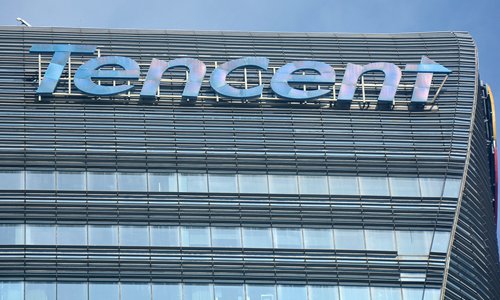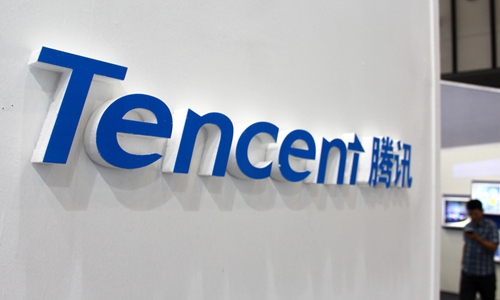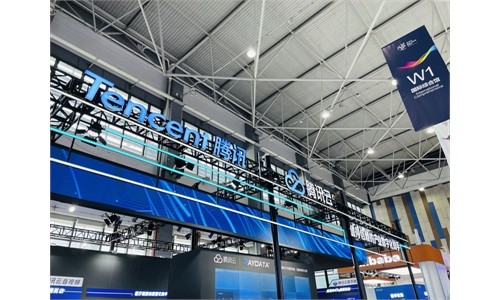China's top market regulator approves Tencent's acquisition of Sogou
Regulators make decision case-by-case amid national antitrust drive

Tencent File photo: Xinhua
A bid by Chinese technology giant Tencent to acquire the country's second-largest search engine Sogou was granted unconditional approval, according to public information released by the State Administration for Market Regulation (SAMR) on Tuesday.
The takeover will make Sogou a direct and fully owned subsidiary of Tencent, and the search engine, which was listed on the New York Stock Exchange in 2017, is expected to delist after the deal.
The approval had sent some surprise among Chinese netizens, particularly after the authorities seemed to ramp up oversight against monopolies lately by barring acquisitions submitted by some internet platforms.
Last week, after an anti-monopoly review, the regulators barred a merger between two livestreaming firms - Huya and DouYu - a deal proposed by Tencent. It was also the first merger prohibition case over business concentration in the platform economy.
On Monday, Tencent was reportedly required to give up its exclusive copyright to music labels. It was also required to pay up to 500,000 yuan ($77,350) in fines for acquiring two music-streaming platforms - Kugou and Kuwo.
Therefore, some netizens wondered why the acquisition of Sogou was not objected, and they want to know whether Sogou could monopolize China's search business with the help of Tencent's resources and capital.
Experts dismissed such risks, saying that Sogou won't be able to establish a monopoly with its current market share.
"Tencent's acquisition of Sogou is different from cases like the DouYu-Huya merger, as Sogou's market share does not have monopoly risks," Zhang Yi, CEO of consulting agency iiMedia Research, told the Global Times on Tuesday.
Usually, the risk of a monopoly only exists when a company's market share exceeds 60-70 percent. Sogou's key business sector known as inputting method however, only accounts for about 30 percent of the entire market, and therefore poses no monopoly hazards, he said.
According to the experts, the government's approval to Tencent's acquisition of Sogou shows that China is not supervising Internet companies "out of emotion", but is managing them according to laws and regulations.
"The government is supervising as well as developing the IT industry at the same time, rather than cracking down on any specific companies," Zhang said.
Tech analyst Liu Dingding noted that the acquisition shows although the government is taking action against the monopolies, it isn't tarring all companies with the same brush. Instead, the authorities are treating each case differently according to its characteristics, he told the Global Times.
In July last year, Tencent said that it intended to acquire Sogou at $9 per share. Sogou shares closed at $8.7 on Monday. In September last year, Sogou said that it had reached a privatization agreement with Tencent, but the deal was postponed due to the SAMR's antitrust review.
Tencent's shares spiked Tuesday and were up 5 percent at noon on the Hong Kong Stock Exchange, the sharpest rise since April this year. Its shares closed 3.93 percent higher at HK$55.5 ($7.15).
Liu said that the acquisition could benefit Sogou to a great extent, in that the company's technologies like voice recognition and search need significant big data enhancements and to be applied to real scenarios. That's an area where Tencent could help a lot with its cloud services and huge customer base.
According to Zhang, input method could be used as a big data "gate" to analyze and collect customer habits and preferences, which is a boon to many business sectors of Tencent, like video games.




